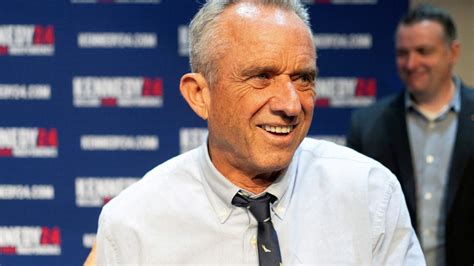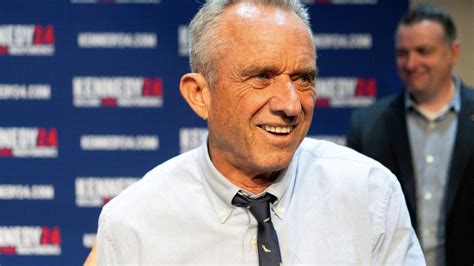U.S. Health Secretary Robert F. Kennedy Jr., a prominent figure in public health advocacy, recently made headlines with his bold stance against the presence of fluoride in drinking water across American communities. In a move that has sparked widespread debate and discussion, Kennedy announced his intention to urge the Centers for Disease Control and Prevention (CDC) to cease their endorsement of fluoridation nationwide.
At a news conference held in Salt Lake City, Kennedy revealed his plans to form a dedicated task force focused on addressing the issue of fluoride in drinking water. This decision comes amidst growing concerns surrounding the potential health risks associated with the long-standing practice of water fluoridation.
Kennedy’s call to action coincided with an announcement by the U.S. Environmental Protection Agency (EPA), indicating a comprehensive review of “new scientific information” pertaining to the effects of fluoride on human health through drinking water exposure. The EPA’s commitment to reevaluating existing standards reflects a heightened awareness of the evolving landscape surrounding public health initiatives.
The state of Utah recently made history by becoming the first state to prohibit fluoride in public drinking water systems. Despite resistance from dental professionals and national health organizations warning against possible negative repercussions, Utah passed legislation banning the addition of fluoride for its residents’ benefit. Governor Spencer Cox signed this groundbreaking law into effect, mandating all water systems in the state to halt fluoridation practices by an impending deadline.
Kennedy lauded Utah’s proactive stance on prioritizing public health, hailing it as a pivotal step towards revitalizing America’s well-being. Standing alongside key legislative figures from Utah, he commended the state for its resolute decision and expressed optimism for similar measures being adopted nationwide.
During the press conference, EPA Administrator Lee Zeldin joined forces with Kennedy, emphasizing their collaborative effort in reassessing scientific research related to fluoride exposure risks through drinking water consumption. Zeldin underscored their shared commitment to leveraging evidence-based findings for safeguarding human health and environmental integrity moving forward.
Kennedy’s Concerns
Kennedy has raised alarming claims regarding fluoride’s classification as a “dangerous neurotoxin,” attributing it to various medical conditions such as arthritis, bone fractures, and thyroid disorders. While historical endorsements positioned fluoride as instrumental in preventing tooth decay and enhancing dental hygiene since 1950, dissenting voices have emerged challenging its safety profile under current levels of exposure.
Expert Insights:
Renowned environmental lawyer Robert F. Kennedy Jr.’s advocacy serves as a catalyst for reevaluating established norms within public health policies concerning water fluoridation.
EPA Administrator Lee Zeldin underscores the significance of incorporating updated scientific evaluations into regulatory frameworks aimed at protecting human well-being amidst evolving challenges.
Research Findings:
Studies suggest potential associations between elevated fluoride concentrations and adverse impacts on cognitive development among children.
A report compiled by the National Toxicology Program highlights global investigations linking excessive fluoride intake with reduced IQ levels among young individuals across diverse regions.
As deliberations unfold regarding optimal levels of fluoride intake within community settings, ongoing discourse underscores critical considerations surrounding maintaining dental health while mitigating potential systemic risks associated with prolonged exposure to this mineral element.
_______ Stobbe reported from New York.








Leave feedback about this